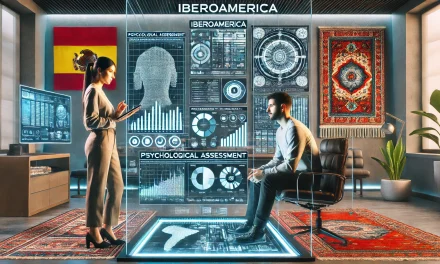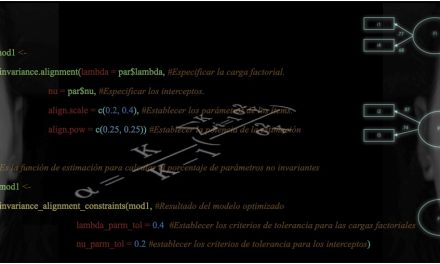
Impact of the climate crisis on people with disabilities

Luz Rivera
The climate change crisis is imminent and evident. And while the devastating consequences of climate change affect everyone, they will inevitably have a much greater impact on populations affected by historical power dynamics, both social, economic and political (Clayton et al., 2021).
That is the case of the one billion people with disabilities (WHO and World Bank, 2011) throughout the world. It is a group that, painfully, usually remains at the bottom of government agendas and are often left outside of public policies and social debates. As for climate change, the picture is not very different. The lack of planning, actions, research, statistics, strategies and interventions generate, once again, gaps that sustain and aggravate inequality and exclusion. Likewise, it is unavoidable to highlight that “poverty, discrimination and stigma are the main elements that influence the exposure of persons with disabilities to the effects of climate change” (Office of the United Nations High Commissioner for Human Rights, 2020, p.17).
One of the many examples that illustrates this serious problem is the mortality rate of people with disabilities in the face of natural disasters, which is “[…] up to four times higher than that of people without disabilities due to the lack of inclusive planning, accessible information, early warning systems, transportation and discriminatory attitudes within institutions and between people” (Stein and Stein, 2021, p. 24). For an even more worrisome scenario, we can add to this last fact the number of people who, as a result of a natural disaster, are left in a situation of disability.
This is why it is urgent to promote an approach based on environmental justice, since climate change is a threat to Human Rights, for example, the right to health, whose guarantee of compliance should guide our practices as psychologists. Therefore, “respecting, protecting and fulfilling human rights can strengthen climate policies and actions, providing lasting well-being, prosperity and justice for all (Environmental Justice Foundation, 2022, p. 7).
In this sense, it is essential that people with disabilities are included in climate action. The voices of those who experience inequity and exclusion on a daily basis are the ones that must be heard as a priority in order to understand the levels of vulnerability and exposure to it, and thus jointly carry out strategies and public policies that have an impact on the guard, protection and maintenance of their quality of life. This is forcefully stated in the Analytical Study on the Promotion and Protection of the Rights of Persons with Disabilities in the Context of Climate Change (2020):
The participation of these people would make it possible to tailor climate action to their circumstances so that their specific concerns regarding the adverse effects of climate change are addressed. Adopting a human rights approach […] empowers people with disabilities as change agents to address the detrimental effects of climate change in their daily lives. If people with disabilities are excluded from decision-making, they cannot contribute to establishing the risk reduction and adaptation measures that might be effective for them and that they themselves could apply. (Office of the United Nations High Commissioner for Human Rights Humans, p. 4).
The role of Psychology is indispensable in addressing the causes, consequences and impacts of climate change: “As researchers, professionals, educators, consultants, communicators, leaders, and advocates, psychologists have multiple opportunities to take action to promote individual collective health, well-being and justice” (APA Task Force on Climate Change, 2022, p. 11). For this reason, from the Rights, Disability and Rare Diseases Task Force we urge you to commit to the rights of people with disabilities and to join efforts to prevent them from continuing to be left on the sidelines and waiting when it comes to facing such critical and severe situations. There is still so much to be done along people with disabilities, and since climate change knows nothing about timing, our time is now.
References
APA Task Force on Climate Change. (2022) Addressing the Climate Crisis: An Action Plan for Psychologists, Report of the APA Task Force on Climate Change. American Psychological Association.
Clayton, S., Manning, C. M., Speiser, M. & Hill, A. N. (2021). Mental Health and Our Changing Climate: Impacts, Inequities, Responses. American Psychological Association and ecoAmerica.
Environmental Justice Foundation. (2022). In Search of Justice. How the Climate Crisis is Driving Inequality and Eroding Human Rights. Environmental Justice Foundation.
Oficina del Alto Comisionado de las Naciones Unidas para los Derechos Humanos. (2020). Estudio analítico sobre la promoción y protección de los derechos de las personas con discapacidad en el contexto del cambio climático. Organización de Naciones Unidas.
Organización Mundial de la Salud y Banco Mundial. (2011). Informe mundial sobre la discapacidad. Organización Mundial de la Salud.
Stein, P. J. S. & Stein, M. A. (2021). Climate change and the right to health of people with disabilities. The Lancet Global Health, 10(1), 24-25.
doi: 10.30849/psinteram111 | Descarga la versión PDF del artículo






















Trackbacks/Pingbacks